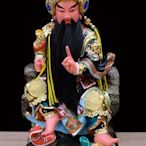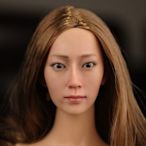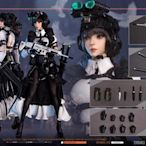搜尋結果
 $1151P D X模型館 HaHtoys H007歐美流行歌手Taylor Swift黴黴 1/6植髮美女頭雕模型⭐⭐P D X模型的家
$1151P D X模型館 HaHtoys H007歐美流行歌手Taylor Swift黴黴 1/6植髮美女頭雕模型⭐⭐P D X模型的家 $9800【寶蓮佛具】8吋8樟木雕刻玄天上帝 植髮 手工帽 上帝公 北極玄天上帝【寶蓮佛具】
$9800【寶蓮佛具】8吋8樟木雕刻玄天上帝 植髮 手工帽 上帝公 北極玄天上帝【寶蓮佛具】 $1520BOxx潮玩~兵人 韓國手工紡KUMIK 16-14 1/6女頭雕黃色植髮BOXX潮玩手辦
$1520BOxx潮玩~兵人 韓國手工紡KUMIK 16-14 1/6女頭雕黃色植髮BOXX潮玩手辦 $1200阿西雜貨鋪GACTOYS 1/6兵人頭 GC037 歐美俠女 植髮頭雕 AB兩款阿西雜貨鋪
$1200阿西雜貨鋪GACTOYS 1/6兵人頭 GC037 歐美俠女 植髮頭雕 AB兩款阿西雜貨鋪![BOxx潮玩~1/6女兵人 妙莉艾瑪華森 好萊塢植髮歐美女頭雕 哈利波特 三款可選 不含素體適合phicen包膠素體 BOxx潮玩~1/6女兵人 妙莉艾瑪華森 好萊塢植髮歐美女頭雕 哈利波特 三款可選 不含素體適合phicen包膠素體]() $1615BOxx潮玩~1/6女兵人 妙莉艾瑪華森 好萊塢植髮歐美女頭雕 哈利波特 三款可選 不含素體適合phicen包膠素體BOXX潮玩手辦
$1615BOxx潮玩~1/6女兵人 妙莉艾瑪華森 好萊塢植髮歐美女頭雕 哈利波特 三款可選 不含素體適合phicen包膠素體BOXX潮玩手辦![阿西雜貨鋪兵人 1/6 頭雕 楊過 古天樂 植髮版 長髮版 神鵰俠侶 LMMM 阿西雜貨鋪兵人 1/6 頭雕 楊過 古天樂 植髮版 長髮版 神鵰俠侶 LMMM]() $1978阿西雜貨鋪兵人 1/6 頭雕 楊過 古天樂 植髮版 長髮版 神鵰俠侶 LMMM阿西雜貨鋪
$1978阿西雜貨鋪兵人 1/6 頭雕 楊過 古天樂 植髮版 長髮版 神鵰俠侶 LMMM阿西雜貨鋪![Mirriro 1/6 美女植髮頭雕裘莉 可配小麥色包膠素體-阿拉朵朵 Mirriro 1/6 美女植髮頭雕裘莉 可配小麥色包膠素體-阿拉朵朵]() $1548Mirriro 1/6 美女植髮頭雕裘莉 可配小麥色包膠素體-阿拉朵朵Y9766558165
$1548Mirriro 1/6 美女植髮頭雕裘莉 可配小麥色包膠素體-阿拉朵朵Y9766558165![金錢貓雜貨 全新 GDTOYS 1/6 GD97006 女僕前線 YULIA 尤利婭 植髮 金錢貓雜貨 全新 GDTOYS 1/6 GD97006 女僕前線 YULIA 尤利婭 植髮]() $6200金錢貓雜貨 全新 GDTOYS 1/6 GD97006 女僕前線 YULIA 尤利婭 植髮金錢貓雜貨
$6200金錢貓雜貨 全新 GDTOYS 1/6 GD97006 女僕前線 YULIA 尤利婭 植髮金錢貓雜貨![§福氣啦開運工藝§神尊∕神明∕觀世音菩薩∕關聖帝君∕1尺3地母至尊(植髮.活眼) §福氣啦開運工藝§神尊∕神明∕觀世音菩薩∕關聖帝君∕1尺3地母至尊(植髮.活眼)]() $23000§福氣啦開運工藝§神尊∕神明∕觀世音菩薩∕關聖帝君∕1尺3地母至尊(植髮.活眼)§福氣啦開運工藝§金香佛具特賣場
$23000§福氣啦開運工藝§神尊∕神明∕觀世音菩薩∕關聖帝君∕1尺3地母至尊(植髮.活眼)§福氣啦開運工藝§金香佛具特賣場![【寶蓮佛具】1尺3樟木植髮玉皇三公主 活眼 植睫毛 玉皇三公主 【寶蓮佛具】1尺3樟木植髮玉皇三公主 活眼 植睫毛 玉皇三公主]() $18000【寶蓮佛具】1尺3樟木植髮玉皇三公主 活眼 植睫毛 玉皇三公主【寶蓮佛具】
$18000【寶蓮佛具】1尺3樟木植髮玉皇三公主 活眼 植睫毛 玉皇三公主【寶蓮佛具】![樟木材質~ 1尺3原木彩繪植髮版 太子爺 三太子 哪吒神像雕刻 木雕精品 N025中日藝術 樟木材質~ 1尺3原木彩繪植髮版 太子爺 三太子 哪吒神像雕刻 木雕精品 N025中日藝術]() $36000樟木材質~ 1尺3原木彩繪植髮版 太子爺 三太子 哪吒神像雕刻 木雕精品 N025中日藝術中日宗教藝術
$36000樟木材質~ 1尺3原木彩繪植髮版 太子爺 三太子 哪吒神像雕刻 木雕精品 N025中日藝術中日宗教藝術![BOxx潮玩~李奧納多 神鬼獵人兵人植髮頭雕 BOxx潮玩~李奧納多 神鬼獵人兵人植髮頭雕]() $3420BOxx潮玩~李奧納多 神鬼獵人兵人植髮頭雕BOXX潮玩手辦
$3420BOxx潮玩~李奧納多 神鬼獵人兵人植髮頭雕BOXX潮玩手辦
Follicular unit extraction ( FUE; also follicular unit excision or follicular transfer, FT) is one of two primary methods of obtaining hair follicles, naturally occurring groups of one to four hairs, for hair transplantation. [1] . The other method is called strip harvesting. [1] .
Wikipedia[note 3] is a free content online encyclopedia written and maintained by a community of volunteers, known as Wikipedians, through open collaboration and the use of the wiki-based editing system MediaWiki. Wikipedia is the largest and most-read reference work in history.[3][4] It is consistently ranked as one of the ten most popular ...
- 334 languages
- Online encyclopedia
- United States
- Early Life
- Character and Failure
- Continued Rejection
- Death
- Poetry
- In Romance of The Three Kingdoms
- Modern References
- See Also
- Further Reading
- External Links
Born in 192, Cao Zhi was the third son of the warlord Cao Cao and Lady Bian. According to the Records of the Three Kingdoms (Sanguozhi), Cao Zhi could recite the Shi Jing, Analects and more than ten thousand verses worth of poems before he even turned 20. His literary talent made him a favorite son of Cao Cao in the early stage of his life. He marr...
However, Cao Zhi was an impetuous man with little self-discipline. He was also a heavy drinker. On the other hand, his elder brother Cao Piknew how to act at the right times. Cao Pi also enjoyed a much closer relationship to the servants and subjects around Cao Cao, and they spoke well of him. In 217, Cao Cao eventually picked Cao Pi to succeed him...
Prospects for Cao Zhi did not improve after Cao Pi died in 226. He wrote to the second Wei emperor Cao Ruimany times, seeking a position to apply his talents. In 232, he even sought a private meeting with Cao Rui to discuss politics. However, Cao Rui probably still considered him a threat to the throne and declined all the offers.
Severely depressed by the setbacks, Cao Zhi soon developed a fatal illness. Aged 41, he quickly died leaving behind instructions for a simple burial. His tomb in Yushan (魚山) of Dong'e countywas excavated in 1951, during which 28 bones were recovered. However, the whereabouts of these bones are currently unknown.
Despite his failure in politics, Cao Zhi was hailed as one of the representatives of the poetic style of his time, together with his father Cao Cao, his elder brother Cao Pi and several other poets. Their poems formed the backbone of what was to be known as the Jian'an poetry style (建安風骨). The civil strife towards the end of the Eastern Han dynasty...
Romance of the Three Kingdoms, a 14th-century historical novel, was a romanticisation of the events that occurred during the late Eastern Han dynasty and Three Kingdoms period. Exploiting the complicated relationship among the Cao Cao's sons, especially Cao Pi and Cao Zhi, Luo Guanzhongwas able to create a scenario where the elder brother, having s...
In 2002, Hong Kong's TVB produced the television drama, Where the Legend Begins, featuring Cao Zhi as the intelligent and compassionate protagonist. Steven Ma played the role of Cao Zhi in the series. There is also a 2013 Chinese television series Legend of Goddess Luo produced by Huace Film and TV, starring Yang Yangas Cao Zhi. Cao Zhi (Ts'ao Chih...
Chen, Shou (3rd century). Records of the Three Kingdoms (Sanguozhi).de Crespigny, Rafe (2007). A Biographical Dictionary of Later Han to the Three Kingdoms 23-220 AD. Leiden: Brill. ISBN 9789004156050.Luo, Guanzhong (14th century). Romance of the Three Kingdoms (Sanguo Yanyi).Luo, Guanzhong (2007). Three Kingdoms: A Historical Novel: Volume IV. Translated by Roberts, Moss. Beijing: Foreign Languages Press. ISBN 978-7-119-00590-4.Works by Zhi Cao at Project GutenbergWorks by or about Cao Zhi at Internet ArchiveWorks by or about Zijian at Internet ArchiveIn Greek mythology, Medusa (/mɪˈdjuːzə, -sə/; Ancient Greek: Μέδουσα, romanized: Médousa, lit. 'guardian, protectress'),[a] also called Gorgo (Ancient Greek: Γοργώ)[b] or the Gorgon, was one of the three Gorgons. Medusa is generally described as a woman with living snakes in place of hair; her appearance was so hideous that ...
CJK Unified Ideographs is a Unicode block containing the most common CJK ideographs used in modern Chinese, Japanese, Korean and Vietnamese characters. When contrasted with other blocks containing CJK Unified Ideographs, it is also referred to as the Unified Repertoire and Ordering (URO).[3] The block has hundreds of variation sequences ...








